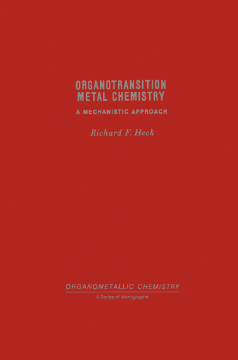
Additional Information
Book Details
Abstract
Organotransition Metal Chemistry: A Mechanistic Approach describes a mechanistic approach to the study of the chemistry of organotransition metals. Organotransition metals are discussed in relation to their reactions with specific functional groups or types of compounds rather than by metals. Topics covered include the formation of hydrogen and carbon bonds to transition metals; reactions of transition metal δ- and π-bonded derivatives; and addition and elimination reactions of olefinic compounds.
This book is comprised of 10 chapters and begins with a historical overview of organotransition metal chemistry, together with the unique chemistry of transition metals and mechanisms of ligand replacements. The following chapters discuss the methods of preparation of hydrido complexes and carbon-transition metal bonds; homogeneous hydrogenation reactions; isomerization, dimerization, oligomerization, and polymerization of olefins; and reactions of dienes, trienes, and tetraenes with transition metal compounds. Transition metal reactions with acetylenes and carbon monoxide as well as organic carbonyl compounds are also examined.
This monograph should be of value to organic chemists as well as students and researchers of organic chemistry.
